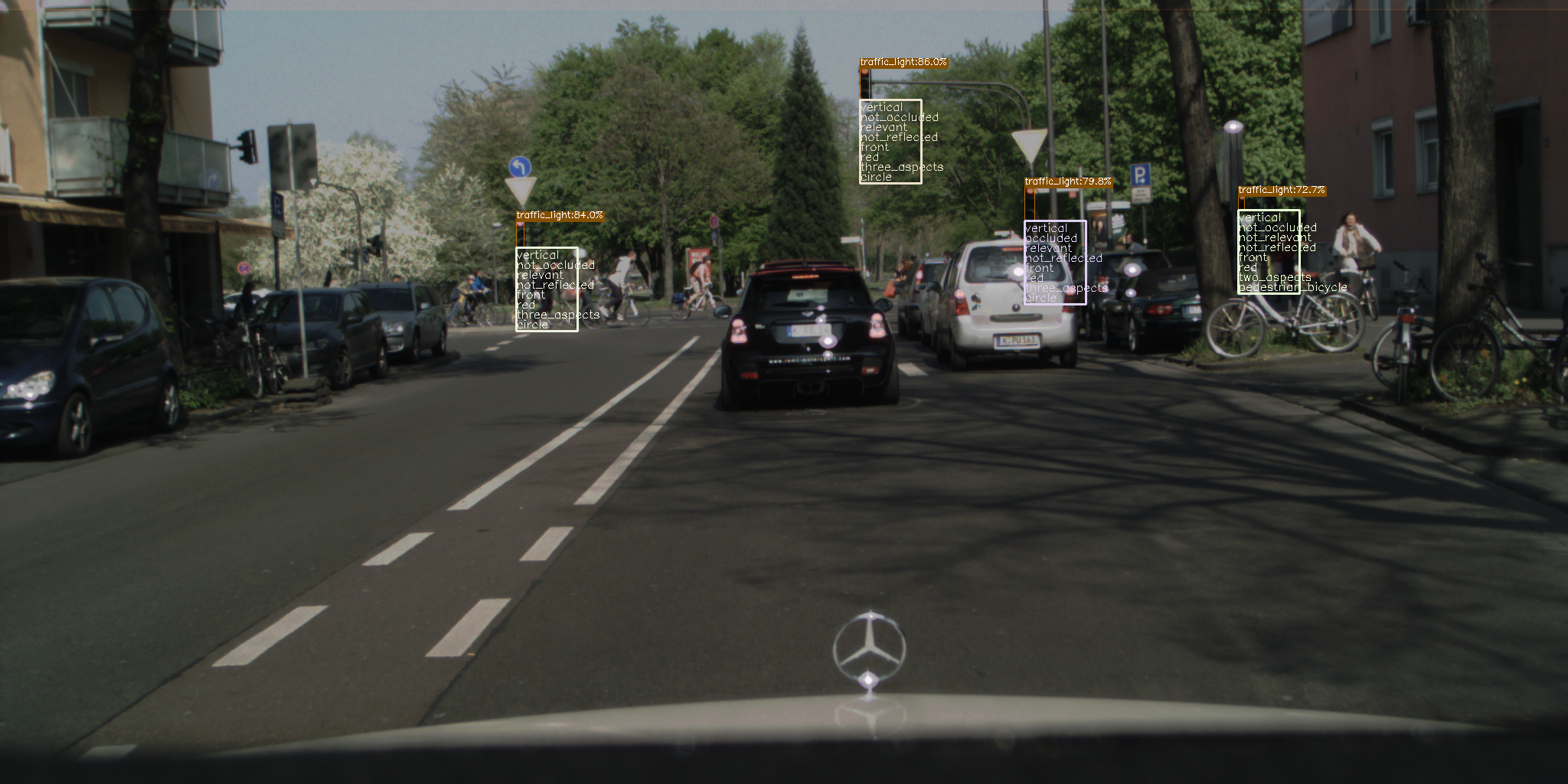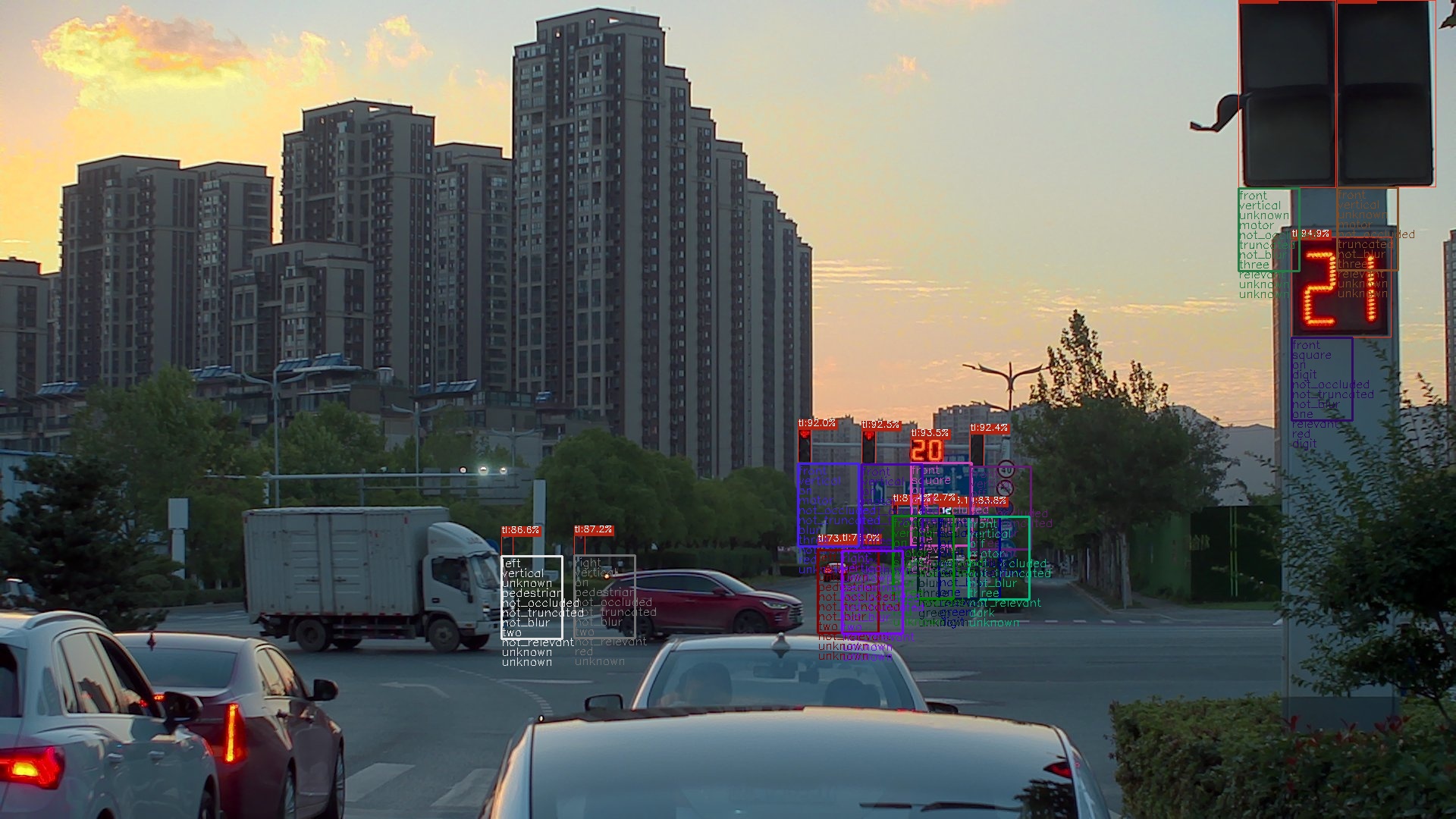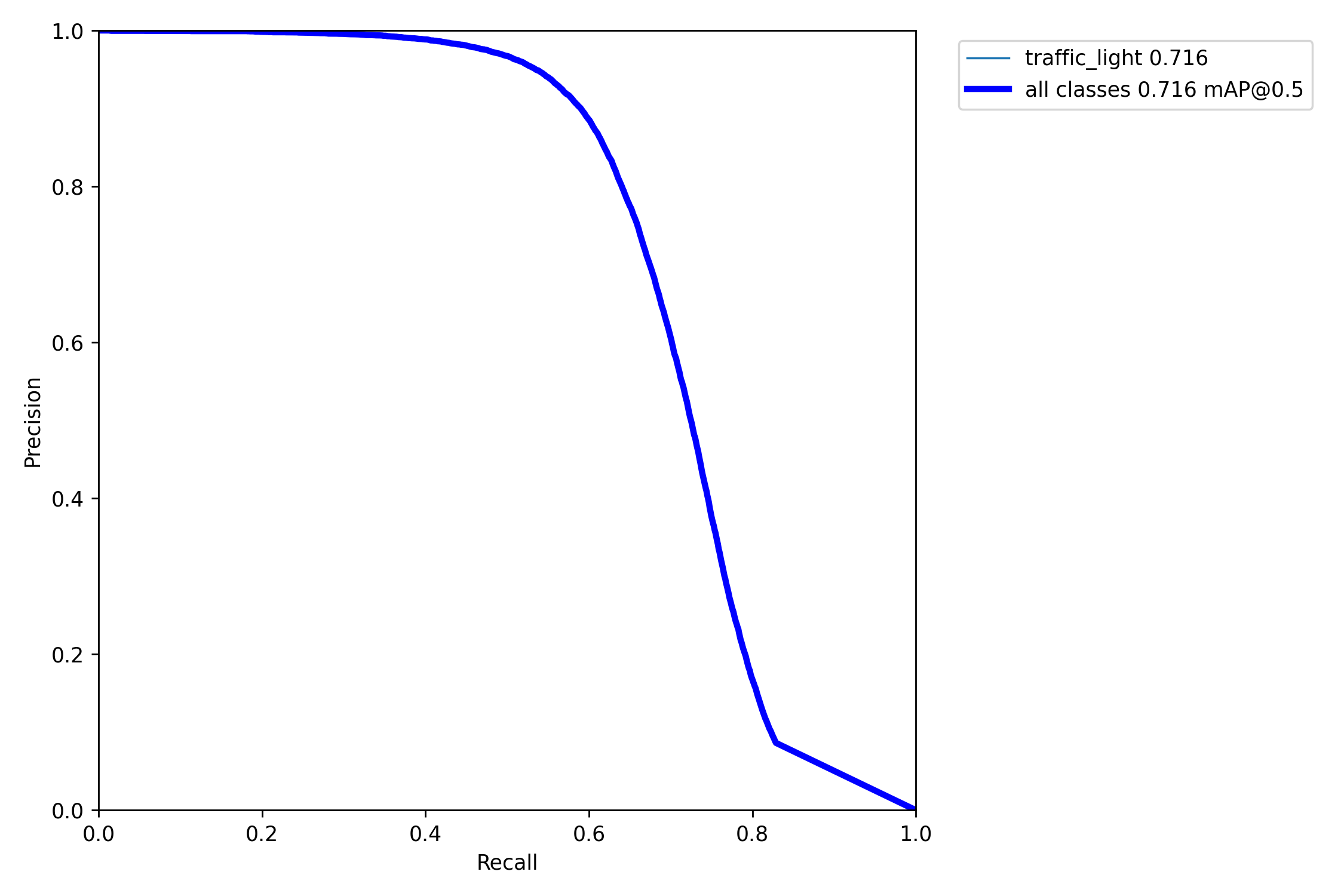- Add attribute detection branch and evaluate code(using DTLD/SGTLS[private] dataset for traffic-light detection).
- Add yolov5 evaluate code, plot eval results like yolov5. And modify VOC evaluate code.
- Add fpn-p2/pan-p2 for small object detection.
- Add support of mt-yolov6 efficient-rep backbone.
Add attribute detection branch and evaluate code(using DTLD dataset). The visualization results is as below:


For DTLD dataset, there are 8 types of attributes. The definition is as below:
{
"orientation" : ["vertical", "horizontal"],
"occlusion" : ["occluded", "not_occluded"],
"relevance" : ["relevant", "not_relevant"],
"reflection" : ["reflected", "not_reflected"],
"direction" : ["front", "back", "left", "right"],
"state" : ["red", "green", "yellow", "red_yellow", "off", "unknown"],
"aspects" : ["one_aspect", "two_aspects", "three_aspects", "four_aspects", "unknown"],
"pictogram" : ["circle", "arrow_left", "arrow_right", "arrow_straight",
"tram", "pedestrian", "bicycle", "unknown",
"pedestrian_bicycle", "arrow_straight_left"]
}
xs_attr_960.py describes about how to train a detect model with attributes. The result is as below:
yolox-s
without attributes(input_size=640):
╒══════════╤══════════╤═════════════╤══════════╤══════════╤══════════════╤════════════╤═══════════════╤═══════════════╕
│ images │ labels │ Precision │ Recall │ mAP@.5 │ mAP@.5:.95 │ f1(best) │ tp(best-f1) │ fp(best-f1) │
╞══════════╪══════════╪═════════════╪══════════╪══════════╪══════════════╪════════════╪═══════════════╪═══════════════╡
│ 12453 │ 91982 │ 0.835614 │ 0.475865 │ 0.569389 │ 0.316157 │ 0.606398 │ 43771 │ 8611 │
╘══════════╧══════════╧═════════════╧══════════╧══════════╧══════════════╧════════════╧═══════════════╧═══════════════╛
with attributes(input_size=640):
╒══════════╤══════════╤═════════════╤══════════╤══════════╤══════════════╤════════════╤═══════════════╤═══════════════╕
│ images │ labels │ Precision │ Recall │ mAP@.5 │ mAP@.5:.95 │ f1(best) │ tp(best-f1) │ fp(best-f1) │
╞══════════╪══════════╪═════════════╪══════════╪══════════╪══════════════╪════════════╪═══════════════╪═══════════════╡
│ 12453 │ 91982 │ 0.845218 │ 0.458231 │ 0.563534 │ 0.308646 │ 0.594277 │ 42149 │ 7719 │
╘══════════╧══════════╧═════════════╧══════════╧══════════╧══════════════╧════════════╧═══════════════╧═══════════════╛
╒════════════╤═══════════════╤═════════════╤═════════════╤══════════════╤═════════════╤═════════════╤═════════════╤═════════════╤══════════════╕
│ tp=43953 │ orientation │ occlusion │ relevance │ reflection │ direction │ state │ aspects │ pictogram │ All │
╞════════════╪═══════════════╪═════════════╪═════════════╪══════════════╪═════════════╪═════════════╪═════════════╪═════════════╪══════════════╡
│ error_nums │ 0 │ 3546 │ 5027 │ 24 │ 998 │ 3799 │ 2881 │ 7146 │ 23421 │
├────────────┼───────────────┼─────────────┼─────────────┼──────────────┼─────────────┼─────────────┼─────────────┼─────────────┼──────────────┤
│ accuracy │ 1 │ 0.919323 │ 0.885628 │ 0.999454 │ 0.977294 │ 0.913567 │ 0.934453 │ 0.837417 │ 0.933392 │
╘════════════╧═══════════════╧═════════════╧═════════════╧══════════════╧═════════════╧═════════════╧═════════════╧═════════════╧══════════════╛
rep_xs_attr_960.py describes about how to train a yolox model with EfficientRep backbone. The results of Yolox-efficientrep on DTLD dataset:
xs_attr_f2_960.py and xs_attr_p234.py describes about how to train a yolox model with P2 Neck.

